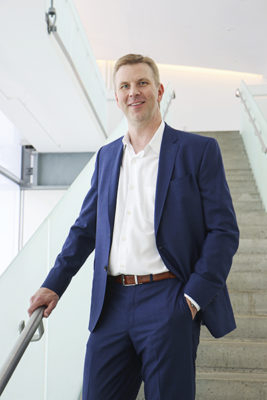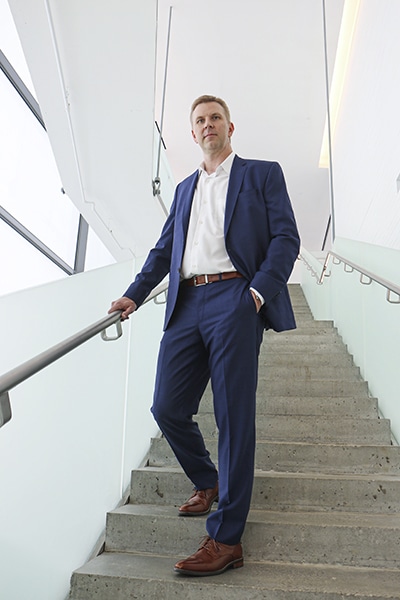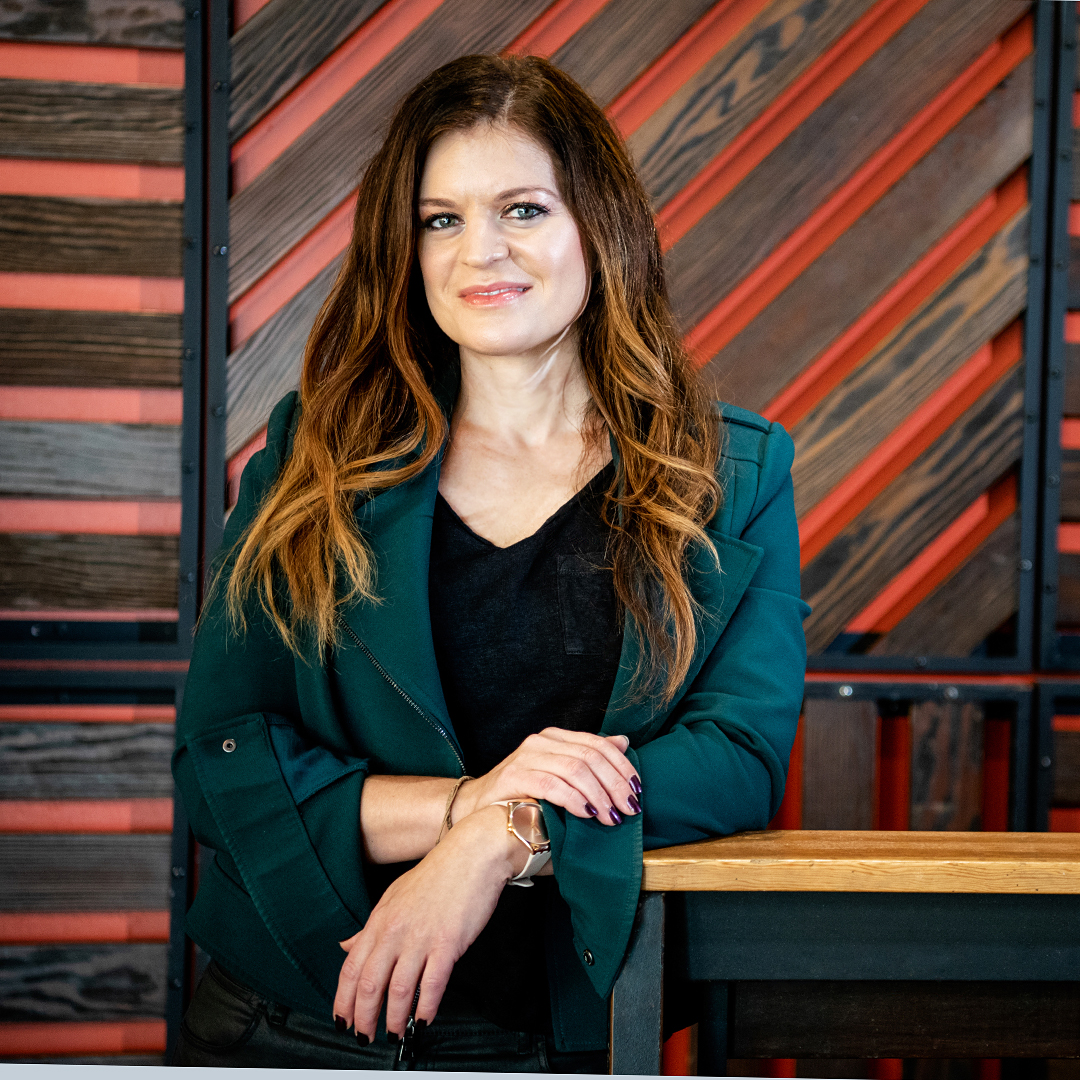|
Getting your Trinity Audio player ready...
|
“This world of engineering and construction—it’s not about the buildings themselves,” remarks Craig Johnson, head of global engineering and facilities at Bristol Myers Squibb Company (BMS). “It’s about the people we’re building them for.”

At BMS, Johnson builds for many people—the members of his team who inherit the operation of the company’s facilities from his project engineering teams, the employees who spend their days working inside those facilities, and, ultimately, the patients who benefit from the life-saving medicines and products that BMS is known for producing.
After graduating from Penn State University in 1993, Johnson began his career at Merck, working “right on the shop floor” of a vaccine manufacturing facility and soon moving up to a role as senior technical advisor.
“Starting out on the floor gave me a really important perspective on what it’s like to actually be inside of a manufacturing facility and what it’s like to work with that equipment, the people, and those processes,” Johnson says. “It helped me understand that a factory isn’t just a building—it’s also a place where people come to work every day.”
After leaving Merck in 2002, Johnson continued to explore the construction and engineering world—literally. For two decades, he served in global leadership roles at leading healthcare companies such as GSK, Novartis, Hospira, Pfizer, and Sanofi Pasteur. That kind of global experience is critical to developing an understanding of how to be successful in different cultures, Johnson explains. “As a professional, I don’t think there is an experience that has a greater impact on your development.”
Despite navigating so many different companies and cultures throughout his career, Johnson has been able to maintain partnerships even as his résumé evolves. Steve Eberling, the US principal in charge at international property and infrastructure group Lendlease, says he’s had had the pleasure of working with Johnson for the past 20 years. “His leadership and drive are both inspiring and beneficial to creating the most successful projects and positive outcomes.”
And at BMS, Johnson leverages this leadership along with his knowledge of both global cultures and international building standards every single day. In addition to managing the biopharmaceutical giant’s global energy and sustainability operations, Johnson oversees three separate, but closely related, functions: global engineering, project engineering, and facilities operations.
“The global engineering and project engineering functions are focused on designing and constructing new facilities, from manufacturing facilities and office complexes to research sites and laboratories,” he says. “In some cases, our engineering teams function as subject-matter experts. In others, they manage every part of the process, from design to all the way through construction and up to the start up.

“For many of our facilities, once it is completed,” Johnson continues, “we turn it over to members of our own team for maintenance and operation—we’re building the facilities for ourselves, in a sense. So during construction and design, we are always very mindful of what the operation and maintenance of a facility will actually look like.”
But Johnson’s teams have to be mindful of more than just the needs of the facilities operations teams, he emphasizes. First, there is “the manufacturing personnel, the scientists, or any other employees who are going to be working in that space. We can’t underestimate how important it is for people to have an environment that is conducive to work, whether they’re in an office or a laboratory,” Johnson says.
At the end of the day, Johnson knows, it’s all about the patient. “I chose to work in the pharmaceutical industry because I wanted to be involved in work that was geared towards promoting global health,” he says. “And at BMS, whether you’re on the shop floor or in an office, everything you do helps to improve the lives of patients.”
BMS helps employees keep the patient top of mind in a number of ways, Johnson says, and routinely incorporates patient stories into company communications and meetings. But for him, one of the most powerful initiatives has been something called Patient Week.
“Every year, during a week, we get to meet actual patients, shake their hands, and hear about the ways in which a specific medicine has impacted their lives,” Johnson says. “The patients can meet the people who worked on that medicine, or the people who helped construct the research facility where that medicine was discovered.
“The fact that our construction projects are part of a life cycle of developing and delivering critical medicines, that is the single biggest motivating factor behind my work,” he continues. “It’s what helps my teams and me get out of bed in the morning. It’s what helps us stay late at work, stay focused on the work. And now that we are a new company with Celgene’s acquisition, we only have further opportunities to bring together the teams of two really great companies and combine our efforts to deliver these incredible medicines to the people who need them.”
Teacher, Leader, Father
Craig Johnson knows that to be a good leader, you have to be a good teacher. “Whether you’re teaching skills or explaining your vision to the organization, you’ve got to be able to connect with people, to teach by example, and share your ideas,” he emphasizes.
But that’s true in any setting, he points out. “When my kids ask me how an engine works, I don’t go to YouTube and download a video for them to watch,” Johnson says. “We go into the garage and take the lawnmower apart so that they can hold the pieces of the engine in their hands and see how they all fit together.
“Of course, my kids are a lot less excited about putting things back together,” he adds, laughing. “My garage is filled with hundreds of different parts and pieces right now.”


